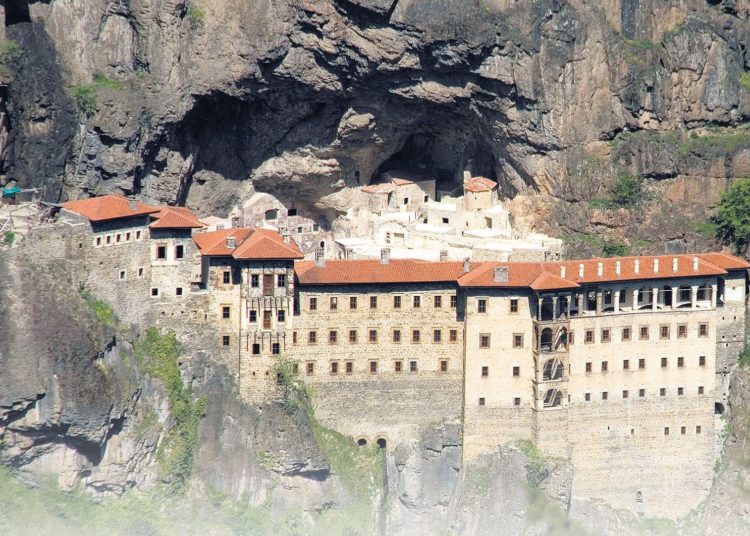Abdullah Bozkurt
The Turkish government secretly ran surveillance on Greek nationals who visited a historic monastery on Turkey’s Black Sea coastline, according to the testimony of a former intelligence officer.
The revelations were made during a hearing on June 20, 2016 at the Istanbul 14th High Criminal Court by Muhittin Zenit, a 46-year-old former police intelligence officer. According to the transcript of the hearing, obtained by Nordic Monitor, the officer, who worked in Turkey’s northeastern province of Trabzon, admitted that one of their mandates was to monitor Greeks who visited the province for sightseeing.
“[Monitoring] Pontus activities are part of our mandate … for example, tour groups from Greece that visit the Sümela Monastery [a 4th century Greek Orthodox monastery in Trabzon]”, Zenit said, adding that he and other intelligence officers ran surveillance on Greek tourists.

Pontic Greeks (Pontus Rumları) are an ethnic group consisting of Greeks who have traditionally lived in Turkey’s Black Sea region and had an autonomous state there until the 13th century. Although many centuries have passed, their numbers have been dramatically reduced and they pose no threat to Turkey’ national security, Pontic Greeks have long been regarded as a security threat by successive Turkish governments. The government of President Recep Tayyip Erdoğan is no exception.
Zenit’s admission confirms that anti-Greek paranoia was systematically and deliberately stoked by the Turkish state, which used security and intelligence agencies in devoting considerable resources to track and spy on visiting Greek tourists.
Nordic Monitor previously revealed how the Turkish government’s monitoring of alleged clandestine Greek operations to revive “Pontianism” (Pontusçuluk) in Turkey led to the murder of 61-year-old Father Andrea Santoro, a priest at Santa Maria Church in Trabzon.

An intelligence document showed that Turkish authorities had wiretapped the Italian cleric on suspicion of involvement in activities to help the resurgence of Pontianism before he was murdered by a nationalist teenager on February 5, 2006. The police cited suspicions that Santoro might be engaging in “separatist activities to revive the state of Pontus” as the reason for its request for a wiretapping order in 2006.
Zenit is an interesting figure. He was the intelligence officer who sounded alarm bells almost a year before the murder of Turkish-Armenian journalist Hrant Dink on January 19, 2007. He had filed a report on February 15, 2006 informing his superiors about an assassination plot he heard about from an informant. Yet the intelligence was ignored by authorities in Istanbul, where Dink was residing, and police intelligence chief Engin Dinç did not act on the information. Zenit was later reassigned to another province but was rewarded by Dinç who made him his personal chief of staff in 2013. Within an hour of the murder, Zenit was found to have talked to an informant who had ties to the killer, Ogun Samast, as well as the mastermind, Yasin Hayal. He is currently being tried on charges of negligence in the murder. He claims he was made a fall guy.












